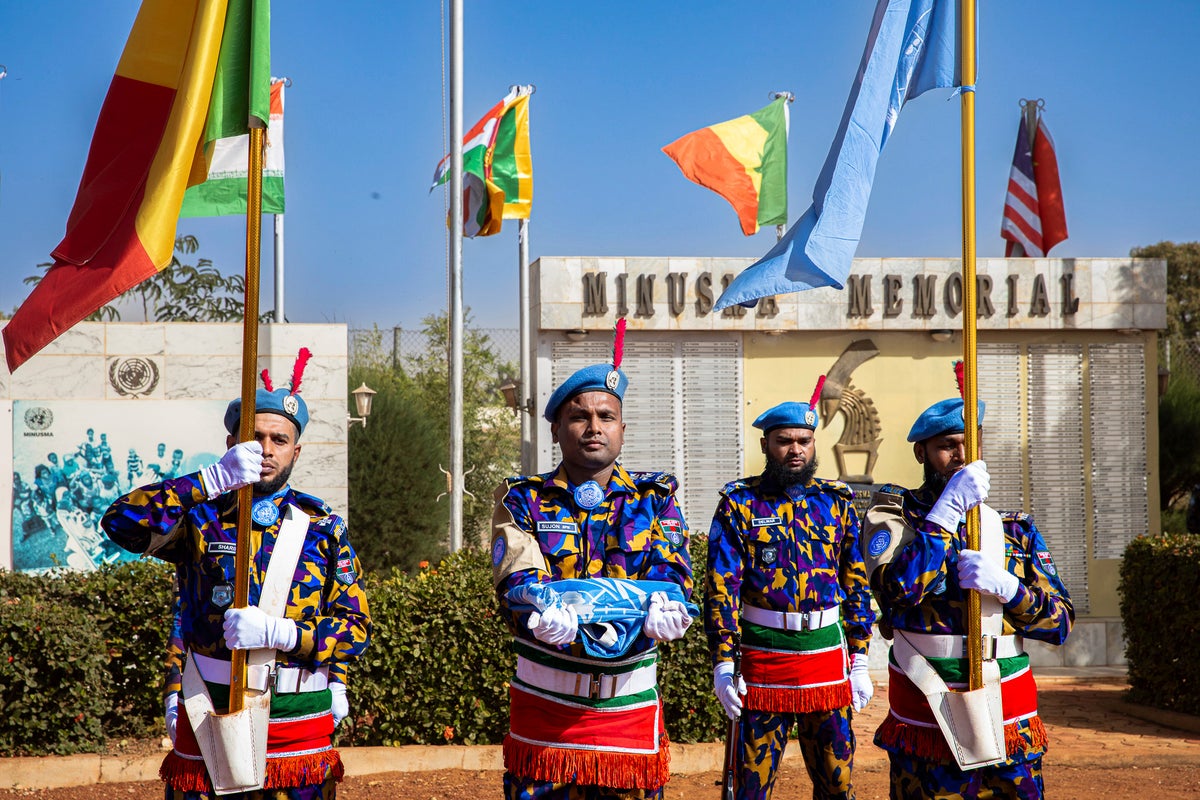
The United Nations ended its 10-year peacekeeping mission in Mali on Monday following the government's request that alleged the force was inadequate to respond to growing violent extremism in the West African nation.
“The Malian terrain was vast and difficult," the commander of the 13,000-strong force, Maj. Gen. Mamadou Gaye, told the closing ceremony in Bamako, the capital.
The U.N. effort in Mali has been the deadliest peacekeeping mission in the world, with more than 300 personnel killed.
Landlocked Mali has struggled to contain an Islamic extremist insurgency since 2012. Extremist rebels were forced from power in northern cities the following year with the help of a French-led military operation. But rebels regrouped in the desert and began launching attacks on the Malian army and its allies — which soon included the U.N. force.
In June, however, Mali’s junta asked the U.N. mission to leave, claiming that its “future outlook doesn’t seem to respond to the security needs” of the country. The French force left last year under pressure from the junta.
Gaye, the U.N. mission commander, expressed confidence in Mali's security forces to resolve the security crisis.
“It’s been a very positive mission which, when all is said and done, has given us a great deal of satisfaction, even if we’d like to do more with the limited resources we have,” he said.
But many in Mali have said the peacekeeping force has brought no stability, especially in the north where rebels are fighting to expand the territories they control.
Mahamadou Bassirou Tangara, a security analyst and researcher with the Conflict Research Network West Africa, said although the peacekeepers were not successful in helping to recover lost territories, they were able to improve the capacity of Malian security forces to tackle the crisis.
“MINUSMA (the mission) was here not to fight but to be a kind of bridge between the national army and some of the rebels" in the pursuit of peace, Tangara said.
There are growing concerns that U.N. peacekeeping operations are increasingly becoming unwelcome in parts of Africa, where a majority of the missions operate. In September, Congo requested the withdrawal of the U.N. mission trying to contain violence in the country's east.
Last week, the U.N.'s top peacekeeping official defended the organization’s missions worldwide but noted limited funds to finance operations.







